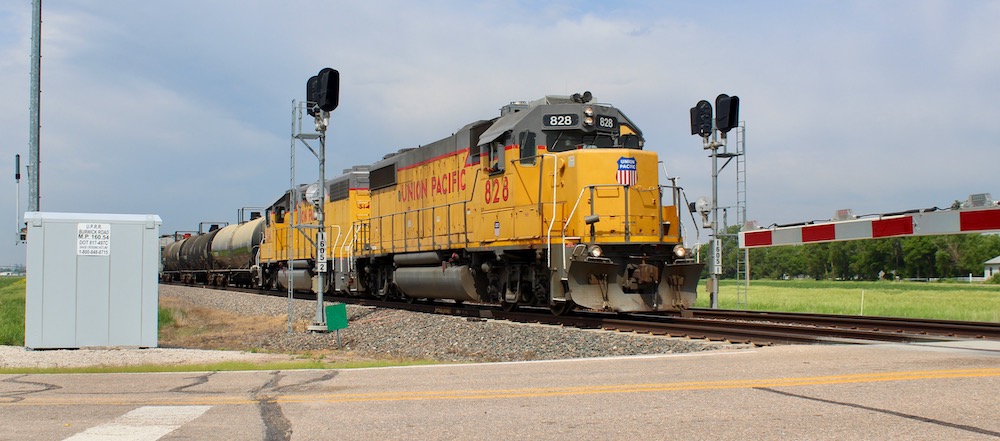
WASHINGTON — Union Pacific’s increasing reliance on embargoes to clear congestion came under fire on Tuesday from shippers, labor unions, and members of the Surface Transportation Board during a daylong hearing.
Regulators last month ordered UP to explain why it has significantly increased its use of embargoes. With UP running short of train crews, the railroad has issued more than 1,000 embargoes so far this year in response to congestion, compared with just 27 in 2017 — the year before it adopted a lean Precision Scheduled Railroading operating model.
In April and November, with congestion rising in some of its local service yards, UP asked some of its carload customers to reduce their inventory of private cars or face the prospect of an embargo that would limit the flow of inbound empties. About 6% of carload shippers have been affected by embargoes.
Before issuing an embargo, UP considers a number of factors, including the number of cars in the yard and how many cars are expected to arrive over the next four days. When a customer’s inventory exceeds its consumption rate, and it will take more than three days to whittle down the excess cars, UP notifies the customer and requests that it adjust inventory within seven days.
If the customer doesn’t meet the target or has not submitted a plan of how it will reduce operating car inventory, then UP issues a congestion embargo with permits that will allow the customer to ship at half their normal level. Exceptions are made for certain sensitive commodities.
Shippers said the embargoes increased their costs — either for shifting to truck or moving freight in UP system cars rather than their own private fleets — and in some instances forced them to curtail production.
Cargill was able to work with UP to reduce 130 cars from its fleet at five of its plants, but said UP refused to move its export grain trains to the Pacific Northwest for two weeks, yet did not issue an embargo. In one case, Cargill decided to transload grain from UP hoppers into BNSF Railway cars for the trip to the coast. Cargill had to foot the bill.
All five shippers on the morning’s panel said that UP was not meeting its common-carrier obligations to provide service upon reasonable request due to the frequency, duration, and short notice of embargoes. “I’ve never seen embargoes used to this extent,” says Gregory Twist, who has 40 years in the logistics industry and currently is senior vice president of transportation at Ag Processing Inc., which ships grain and soybean oil.
Twist says UP didn’t hold itself accountable for poor service that creates congestion. UP misses switches, he says, then delivers cars in bunches and also fails to provide the requested number of empties.
But Bradley Moore, UP’s vice president of customer care and support, says the railroad won’t issue an embargo if its local service falls below the 80% performance level or if transit time is extended.
UP CEO Lance Fritz says the railroad is doing all it can to hire crews and restore service. “We fully understand that imposing embargoes can result in challenges for our customers,” he says. “I again emphasize we only reach for this option as a last resort. Union Pacific is committed to restoring the fluidity of our network completely, and with that the consistency and reliability of our service to all of our customers.”
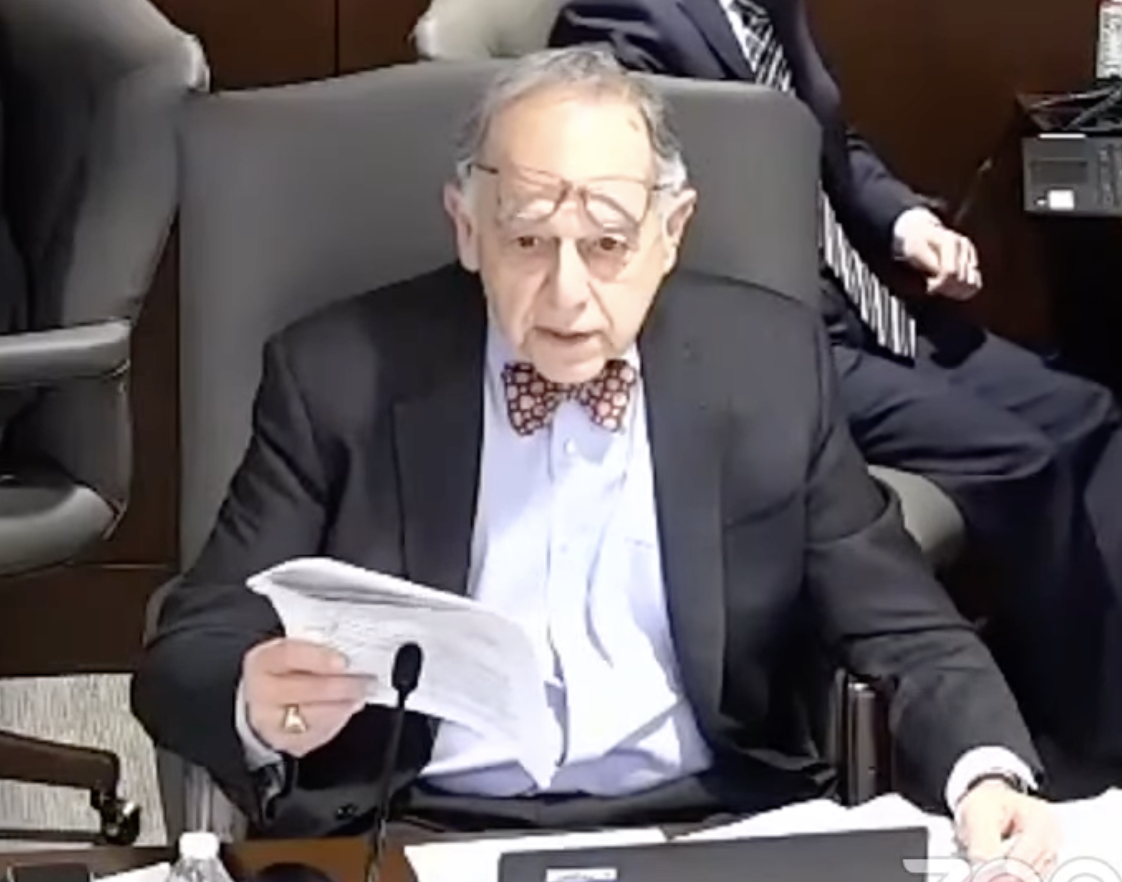
STB Chairman Martin J. Oberman sought to link UP’s job cuts under PSR to the railroad’s current service problems.
He noted that UP’s embargoes increased as the number of train and engine employees fell from more than 18,000 in 2017 to 13,173 currently. “As I see it, there’s a direct relationship between the reduction of employees and increase in embargoes even as operating inventory is going down,” Oberman says.
UP has fewer employees because of operational changes under PSR, including moving its tonnage on far fewer trains, Fritz says. The average daily train count in 2018 was up to 900, Fritz says, compared to between 600 and 650 today. “There’s a ton of work that came out of the network,” he says, so UP doesn’t need as many employees.
Shippers and board members, however, said it was clear UP doesn’t have the resources it needs to handle current traffic levels.
One of the reasons embargo use has risen, Moore says, is that prior to 2018 UP issued an alert only after a local serving yard was clogged. Since then, UP has used a proactive car inventory system to identify excess cars before yards are affected, he says.
Kenny Rocker, UP’s executive vice president of marketing and sales, says it was only natural for customers to increase their car inventory as the railroad becomes congested and slows down.
Fritz said that although service is not yet where UP or its customers want it, the railroad is more productive and its customer service is better today than before it made operational changes under PSR. The best measure of UP’s service, he says, is the number of miles cars travel in a day.
But board member Patrick Fuchs challenged that, noting that UP’s car miles per day is currently 5% below pre-PSR levels.
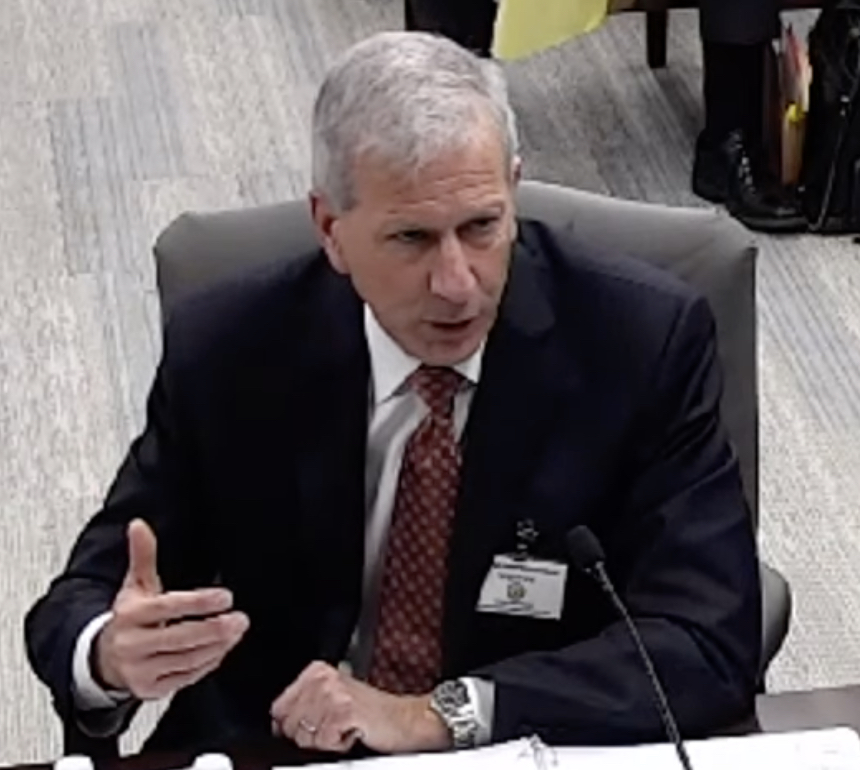
“Our productivity is lousy this year and our service is not good this year,” Fritz says. “There’s no hiding that fact. We own that.”
Board member Robert Primus said there was a disconnect between what UP says — that embargoes are a tool of last resort — and what customers feel. “It’s been at least two to three years of last resorts,” he says.
Board member Michelle Schultz asked where UP’s embargo trend will go. UP has issued the vast majority of Class I railroad congestion-related embargoes this year, and a sharp increase in November prompted the board to schedule the hearing.
“Nothing would please me more than we don’t have any embargoes issued next year because there’s no need,” Fritz says.
UP executives said they would consider providing shippers with more notice when they were approaching critical car inventory levels, give them more time to respond, and project when an embargo might expire.
Oberman noted that when BNSF Railway embargoed certain carload shipments to California over the summer, it included an anticipated end date that it shared with shippers and regulators. “There was an end date. Your embargoes have no end date,” Oberman says. “None.”
Shippers said that gaining access to a competing railroad via a reciprocal switch would help ease congestion on UP as well as allow them to continue to ship at normal levels.
Fritz says UP would consider reciprocal switching requests as part of a broader look at potential embargo solutions. “If that’s the best solution, we would do it,” he says, emphasizing that broad reciprocal switching would have a negative impact on service.
Oberman said the board would order UP to produce documents related to decisions on embargoes as well as train and engine employee levels, including hiring plans.
The hearing will continue on Wednesday with shipper trade associations and rail labor representatives scheduled to appear.






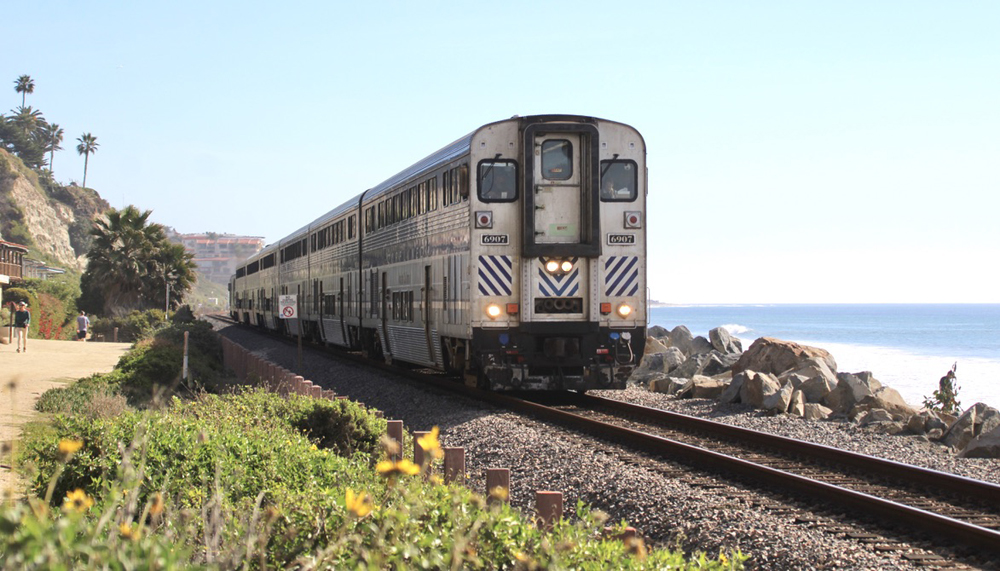

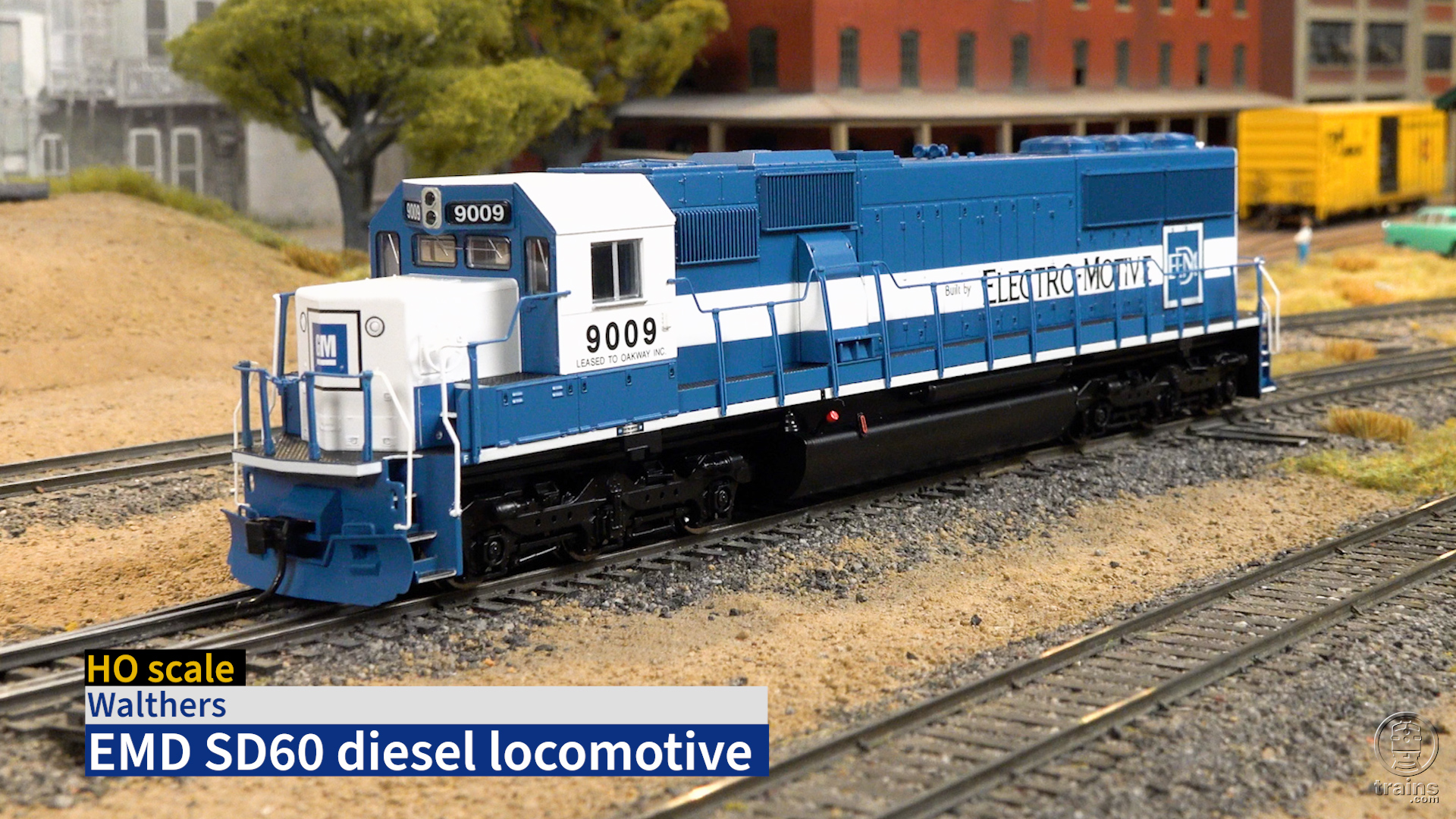
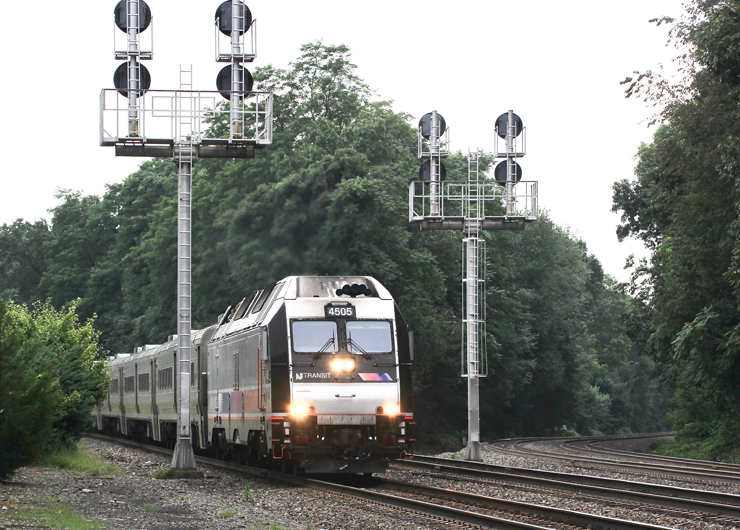




PSR and the worship of Wall st is what started the problems and its still going.
Require UP and all class 1s to limit the length of their trains. The limit should be no train on a section of track could be longer than 10 -20 minutes from a siding that the train would fit. So shorter siding that is more than 10 – 15 minutes from a siding of the said train’s length. That would mean It might be that only one longer siding would be needed for several hundred miles or that many longer sidings will be required.
Once this metric is met then reduce time allowed. This would help all RR customers as well on routes that carry Amtrak. Amtrak routes would get some priority in making sidings longer.
If a rr tries to hold train cars at a yard to meet length limits then a penalty may be iimposed. That is especially true when there are other thru trains. However, if only one train a day on a branch line the sidings would not be required. Think grain trains
What exception could be said about what Fritz said?
“We are hiring more people. We use embargoes only as a last resort. When more cars are on the railroad and can’t be moved promptly because of on-going crew shortages, the railroad becomes even more congested. We are looking ahead to see where unacceptable congestion will occur.”
Chairman Oberman: what do you want UP to do that it isn’t already doing?
I say tie the executive bonuses to the fluidity of the trains and the satisfaction of their customers, NOT the O. R.
That would get their attention.
By the way there’s a direct relation between all the railroads availability policy tightening and the rate of attrition. No one wants to talk about that except the unions and no one listens to us. Well we don’t necessarily need words to tell the railroads to F off but actions are just as strong, and the amount of people quitting is very telling. They can’t keep the ones they hire to replace because once the honeymoon of working at a railroad wears off reality sets in and for the vast majority it’s not doable nor acceptable in this day and age.The railroad spin doctors can spew their rhetoric all they want yet they can’t lie about the reality of the situation, the only way to keep people is to make it attractive to the up and coming workforce . The old ideology of the workforce needs us more than we need them is disappearing fast and they know it. The supposed kinder gentler availability policies at a couple class 1s announced recently are a start and I suppose the others will follow suit eventually only because the ones they have in place now do nothing to retain anyone, only remove many. There seems to be a ton of wasted education monies in the front office because everyone except the top knows the problem and knows the solution yet they’re still in place. We shall see…..
It’s just one more nail in the coffin for the rail industry as a whole. Anyone who’s anyone knows it’s east (relatively) to sell a product and attract customers to your business if you have a good product or service to sell them, but once you’ve sold that product and don’t produce your promised service and that customer leaves they’re gone forever. It’s only a matter of time before they eventually run out of customers that will put up with their crap…….. they’ll blame it on guys like me though that work for the railroads as a drain on their bottom line and the reason for their demise and the whole world will believe them and lament those bad union rail workers. It’s a story played over and over like a broken record. There’s hope though, someone will pick up the pieces and hopefully start fresh and rejuvenate what’s left.
Back in the day, not that very long ago railroads worked with their customers big or small on a daily basis, railroads did not cherry pick customers, so sad.
Union Pacific and other class 1 railroads ran off some really good customers and some really great people that knew how to run a railroad. Now Class 1 railroads wants to play catch up with mostly inexperienced workers cause Class 1 railroads let go or ran off the old heads that could have taught and showed how to run a great railroad, now they are gone, so sad. I had 38 years with the railroad and have never seen this so call embargoes and upper management treat their employees the way they do now, the workers eat breathe class 1 railroads with no time to catch a breath, no sick time or even family time, and never hardly at home and of course no compensation during the high of the pandemic, so now the employees are the problem, not! Upper management cares about one thing not doing their job but making big money for their stock holders with so call PSR. It only works for the right reason!
Is there EVER going to be accountability for the sociopathic executives and Wall Street analysts and hedgies pushing PSR? Railroad service quality down, profits up. Plus, operating employees don’t need sick days.
The BLET president has been voted out by membership by a UP engineer. Who would have thought?
None of this will matter a few years from now, when the railroads will have run out of employees. No one wants these jobs.
Imagine being a T+E crew when one of these 15,000-foot container ships flops on its side onto the ground. Crew is hauled in for drug/ alcohol tests and is endlessly investigated. Do you want to be that employee? No. Nor does anyone else.
Even back in the days of ICC regulation, industries preferred to be served by two railroads. Then, each RR knew if they gave bad service, the industry would move traffic to the other RR. Of course with merger after merger, finding two railroads is an issue. A regional with multiple connections sounds good.
What did Cargill do? Unload the UP cars here, then truck the grain to an elevator on BNSF and load it there?